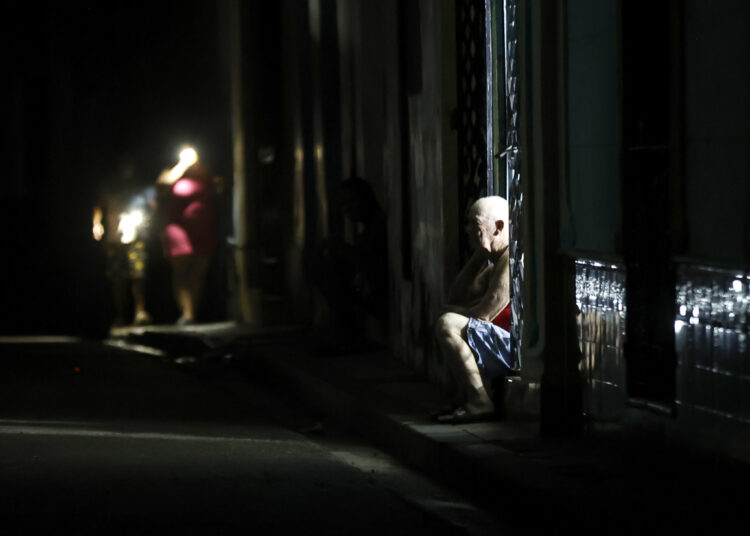The U.S. government said this Monday that it is “closely” monitoring the blackouts that Cuba has suffered in recent days and assured that it does not rule out providing aid to the island.
During a press briefing, White House spokeswoman Karine Jean-Pierre said that her government is concerned about “the potential humanitarian impacts (of the blackouts) on the Cuban people,” at a time when Cuba is seeking to recover from the recent collapse of its electrical system.
The spokeswoman explained that the Cuban government “has not requested any assistance at this time,” but she did not rule out providing it in the future if it does so.
If such a request were to occur, she explained, the U.S. administration “would assess the appropriate next steps,” says a report from the EFE news agency.
In response, the Cuban Ministry of Foreign Affairs (MINREX) assured this Monday that “specific requests” are not necessary and that the U.S. authorities know “clearly what must be done,” about the lifting of sanctions.
“If the U.S. government is truly willing to help, it knows and clearly understands where it can make a difference and what must be done. There is no need for too many explanations or specific requests,” responded Deputy Foreign Minister Carlos Fernández de Cossío.
The diplomat attacked the embargo/blockade, which he considered “directly responsible, by design, for Cuba’s economic problems, the current difficulties with the power supply, transportation, health services and the availability of food.”
Responsibilities and cross-attacks
In response to a question from EFE, Jean-Pierre said that her country “is not to blame” for the blackouts on the island and blamed the Cuban government for the current electricity crisis.
“As we have seen over the past few years, Cuba’s economic condition stemming from long-term mismanagement of its economic policy and resources has certainly increased the hardship of the people in Cuba,” she said, in contrast to what the Cuban authorities have maintained.
Havana has blamed the U.S. embargo/blockade and sanctions for the crisis in its electrical system, an accusation that has been taken up again these days by President Miguel Díaz-Canel and other Cuban officials after the “total disconnection” suffered last Friday.
Along the same lines, the MINREX also responded to the White House spokeswoman.
“And they do it again! And nobody believes them!” wrote Johana Tablada, the deputy director for the United States of the island’s Foreign Ministry, on her X account.
In a thread of messages, Tablada pointed out that “in addition to everything that is prevented for Cuba in the Export Administration acts, the Trading with the Enemy Act, the Foreign Assistance Act, and the Helms-Burton, since 2019 there has been a special program to intensify the persecution of the energy sector.”
The diplomat pointed out that since that year “there has been a unilateral list and medieval surveillance of ships, shipping companies, exporting, importing and insurance companies fined for participating in fuel trade with Cuba” and added that “the United States has also acquired companies from other countries that invested in the sector and now there are no spare parts.”
Cuba’s National Electric System (SEN) is in a very precarious state due to the shortage of fuel ― the result of the lack of foreign currency to import it ― and the frequent breakdowns in the obsolete thermoelectric plants, many of which have been in operation for four decades and have suffered a chronic lack of investment.
Although blackouts have been common on the island for years, the situation has worsened in recent weeks, to the point that the government announced an “energy emergency” along with a group of measures to deal with it.
A breakdown in the Antonio Guiteras thermoelectric plant caused a “total disconnection” that left the entire country in darkness. Since then, the Electric Union has been working to restore the system, but there have been new total and partial outages that have reversed what has been achieved and caused new blackouts.
Right now, work continues, starting with the creation of “subsystems” in the different regions and provinces of the country, in addition to the work of recovering from the damage caused by Hurricane Oscar in the east of the island.
The constant blackouts damage the Cuban economy — which contracted by 1.9% in 2023 — and fuel social discontent in a society affected by an economic crisis that has worsened in recent years. They have also been the trigger for anti-government protests, including those in July 2021 and others that occurred later, including several during the current electrical collapse.
EFE/OnCuba










